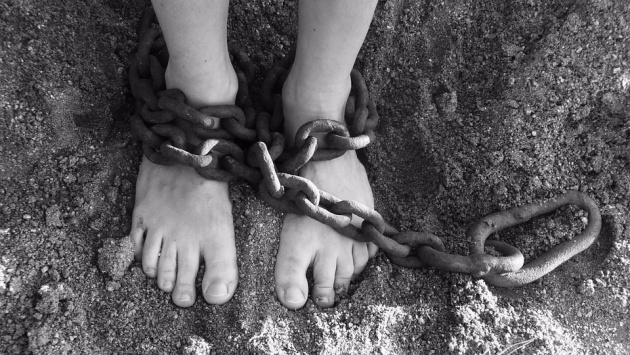
IMAGE CREDIT TO Erik Scheel VIA Pexels
Hello guys!
Well, this is my first blog, hope you guys like it. The topic of blog is about Zakat. In this blog, i'm going to mention, it's definition and beneficiaries of zakat and economic significance of zakat. Well, let's just begin.
What is Zakat
"The fourth pillar of Islam"
Zakat is an annual transfer payment which Sahib-e-Nisab Muslims make at given rate by themselves rate by themselves or through the Islamic State to its beneficiaries as mentioned in Surah Tauba, verse 60, in the holy Quran.
VIDEO CREDIT TO hasbunallahu wa ni'mal wakeel VIA Youtube
Meaning of Zakat:
Zakat is an arabic word, which has two meaning:
1.That which purifies:
That is, Zakat keeps a Muslim away from illegal sources of earning and eliminates the love for stocking wealth.
2.That which Cause Growth:
Zakat grows the wealth as, when it is made, it enables the beneficiaries to make consumption, and hence aggregate demand rises, employment increases and then economy grows. Zakat payer is also benefited.
Beneficiaries of Zakat
VIDEO CREDIT TO hasbunallahu wa ni'mal wakeel VIA Youtube
There are eight categories of Muslims can be treated as the beneficiaries of the Zakat.
1.The poor:

IMAGE CREDIT TO Vijay Putra VIA Pexels
The Muslims who are not Sahib-e-Nisab, that is, they possess less than 7.5 tola gold, 52.5 tola silver, or the equivalent value in terms of cash money. Moreover, they are not able to even feed themselves and their families.
2.The needy:
The Muslims who are unable to earn income like disables, handicapped, unemployed, orphans.\
3.The collectors of Zakat:
The Muslims who are appointed to collect and disburse Zakat. Their salaries can be given from the amount of Zakat.
4.The Converts:
The people who are converted to Islam. These new Muslims have right to benefit from the amount of Zakat.
5.The Slaves and prisoners of War:

IMAGE CREDIT TO PublicDomainPictures VIA Pixabay
The amount of Zakat is be used on getting freedom of Muslim slaves and prisoners of war from their master and enemies.
6.The debtors:
The Muslims who are heavily in fair debt burden, also in the beneficiaries of Zakat. Zakat should be given to them to get rid of this burden.
7.The Mujahideen:
The Muslims, who are fighting with the enemies of Islam are also to be treated as the beneficiaries. The amount of Zakat can be used to provide them food, clothes and weapons used in the war.
8.The travellers:

IMAGE CREDIT TO keulefm VIA Pixabay
The Muslims travelers fall in need of money during their travelling are to be treated as the beneficiaries of Zakat. The amount of Zakat can be used to complete journey.
Economic Significance of Zakat
Zakat has benefits, but i'm going to be mentioning a few of them. These are the following benefits, i came up with.
1.Fair distribution of wealth:
Zakat is a fair tool in Islamic society that discourages the concentration of wealth. When shahib-e-nisab Muslims pay zakat at the given rate, every year the amount of money ultimately comes into hands of those who are really in need of money. In this way, the gulf between the rich and the poor narrows down and as the process continuously goes on, it result into fair and equal distribution of wealth within few years.
2.Elimination of class conflict:
Zakat enables to eliminate the element of discrimination between rich and poor, because while giving Zakat to the poor, sahib-e-nisab Muslim keep themselves directly in touch with the poor and efforts to promote this feelings. So, they become close to each other.
3.Socail security:
Zakat provide social security to the unemployed, disabled, orphans and handicapped members of the Muslim society. So, that they found themselves covered.
4.Self Reliance:
Zakat is a strong source to enable the Muslim society to be self reliant. As a whole, the Muslim society become caring of each other and therefore, they can easily and quickly over come on economic set back of the poor sections of the society.
5.Social Welfare:
Collection of Zakat through bait-ul-mal enables the Islamic state to provid basic social welfare programs like hospital, educational institution parks, street light, drainage system, basic needs. All these steps boost up the society to economic development.
6.Curbing the anti social activities:
The only concept of earning in Islam is Rizq-e-Halal and therefore Zakat can only be paid out of Rizq-e-Halal. Hence, the Muslims strictly avoid to earn easy money. They refrain themselves from the activities like smuggling, black marketing, hoarding.
7.Crimes control:
Poverty is the major cause of crimes. Zakat is an automatic crime controller because this enables the poor section of the society to be effective member, therefore, they get encouragement and act which are useful not only for them but also for society as whole. So, they do not involve in the crimes like theft.
8.Capital accumulation:
Zakat discourages the hoarding. The members of Muslims state make Zakat out of their annual savings in the form of gold, silver or cash. So, they inject their money into body of economy, which in turn raises the investment, employment, businesses, income and hence economic development.
9.Economic stability:
The amount of Zakat, when become in circulation, brings economic stability. Because, money in circulation adds the economic activities, removes the unemployment, raises the investment, increase the output, appreciates the aggregate demand set the economy equilibrium point at higher possible level and hence surety for economic stability.



